Este artículo está también disponible en / This post is also available in: Spanish
Every year on June 20, the world celebrates World Refugee Day to honor refugees and displaced people around the world. This year, the focus will be on the right to seek protection. Every person in the world has the right to seek protection, no matter who they are, where they come from or when they have had to flee, including the protection of their health needs. Health is a human right that knows no borders. Despite the fact that it appears in multiple international treaties, conventions and laws, 30% of the population of Latin America and the Caribbean (LAC) does not have access to health care.
On the occasion of this anniversary, from the IDB’s Housing and Urban Development Division we want to address this issue that is so important for the development of the cities of our region. To do this, we approach one of the most vulnerable groups in our society, which we must protect: refugees, migrants, and displaced people.
Join us to learn the story of Nelitza, José Luis, María Teresa and David. They do not exist: we create their stories based on the situations we hear to preserve the privacy of the real protagonists. They represent the millions of migrants and refugees who, day by day, seek a better life.
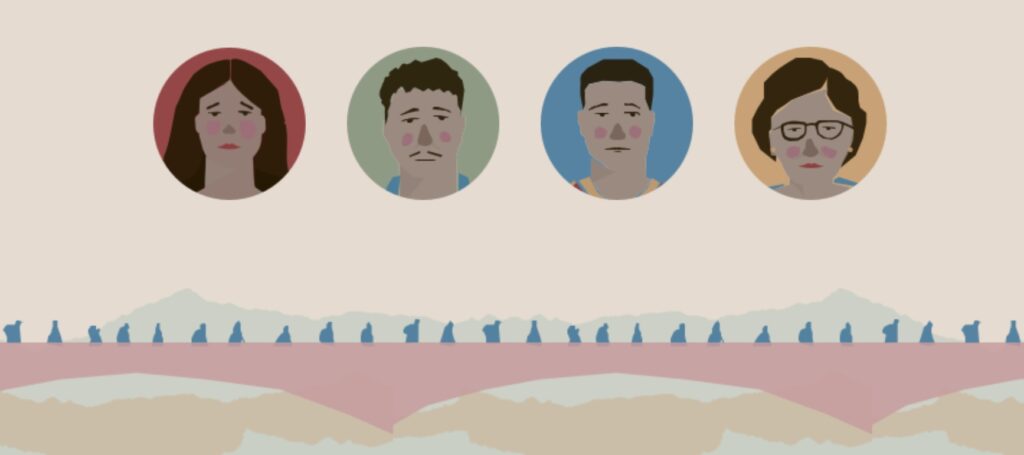
A story in a million
Migration is a phenomenon that brings benefits to our cities, with contributions in the labor, economic, social and cultural spheres. People who emigrate are usually young people with good health and ability to work. Rather, it is the adverse conditions they encounter that end up affecting their well-being, both physical and mental. Therefore, migration by itself is not a risk to health, but it is a social determinant of it.
From the Department of Urban Development and Housing of the IDB we wanted to listen to the voices of migrants who come to the cities of our region in search of a better future for themselves and their families with the aim of thinking about policies to improve their lives. The main recent migratory phenomenon within LAC is found in Venezuela. More than four million Venezuelans have moved to other countries in the region since 2015. Accessing health was not easy. With the arrival of the COVID-19 pandemic, it became even more complex.
In today’s blog we develop four stories based on an investigation carried out by a team from the Department of Urban Development and Housing, available here, on the barriers to access to health that affect migrant communities in Colombia and Peru. You can navigate these trajectories in our interactive story, or continue reading this blog.
Nelitza: excluded from public health due to lack of documentation
Nelitza was pregnant when she left Caracas in 2019 and settled in Barranquilla, where her aunt María Teresa lives.
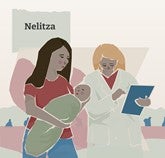
Although she does not have Colombian citizenship, she was able to give birth and do the controls for her son Boris’ first year at the public hospital.
Nelitza recently fell off her bike and hurt her wrist. In the guard they bandaged her but, since she does not have legal permission, they did not refer her to a specialist.
- How to improve access to health for people like Nelitza?
- A first obstacle that migrants encounter is legal: they are excluded from public health due to lack of documentation.
- About 55% of Venezuelan migrants in Colombia and Peru lack legal status.
- It is necessary to separate the legal status of access to health and strengthen the mechanisms of oversight of this right.
José Luis: uncapable to afford health services
José Luis worked as a construction worker and never had time to process his permit, since his plate of food depended on his daily pay.
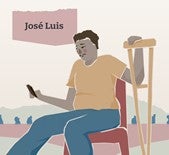
When he had an accident, he was treated in the Emergency Room but, lacking a legal residence permit, he was unable to undergo the necessary rehabilitation. Without wages, he also did not have the economic capacity to pay for the private clinic. Luckily, a well-known Venezuelan doctor sent him some exercises via Whatsapp to do at home.
When he had an accident, he was treated in the Emergency Room but, lacking a legal residence permit, he was unable to undergo the necessary rehabilitation. Without wages, he also did not have the economic capacity to pay for the private clinic. Luckily, a well-known Venezuelan doctor sent him some exercises via Whatsapp to do at home.
Today he is better, but he has not walked well again, and he sublets the rooms in his house in order to survive.
When he had an accident, he was treated in the Emergency Room but, lacking a legal residence permit, he was unable to undergo the necessary rehabilitation. Without wages, he also did not have the economic capacity to pay for the private clinic. Luckily, a well-known Venezuelan doctor sent him some exercises via Whatsapp to do at home.
Today he is better, but he has not walked well again, and he sublets the rooms in his house in order to survive.
How to improve access to health for migrants without economic capacity?
- The main obstacle for which migrants desist from accessing the health system is the financial one.
- 88% of migrants in Colombia have difficulties to cover their health expenses and 65% in Peru are not attended due to the migrant’s lack of economic resources.
- To protect everyone, access to essential packages of health services for migrant populations must be promoted.
David: uninformed and lost
David crossed into Cúcuta just before the border closed, following in the footsteps of his girlfriend Nelitza, who gave birth to their baby in Barranquilla.

To raise the necessary money for the ticket, he works for two applications. The day he woke up with a fever, he stayed in his room. When the symptoms worsened, he wanted to go to the hospital, but the owner of the boarding house told him: “Without permission they won’t treat you”.
.To raise the necessary money for the ticket, he works for two applications. The day he woke up with a fever, he stayed in his room. When the symptoms worsened, he wanted to go to the hospital, but the owner of the boarding house told him: “Without permission they won’t treat you”.
Three weeks later, David is feeling better. But he lost his sense of smell, the 20-day wage and a good part of his rating in the apps.
How to improve access to health for someone who, like David, is unaware of bureaucratic requirements?
- The lack of knowledge about procedures, resources and rights is a major obstacle to access to health.
- 93% of the migrants who sought care in Colombia indicated that bureaucratic requirements are a problem and 40% of those interviewed in Peru indicated that they do not know what documents they need to receive care.
- It is necessary to promote knowledge of the health system for the migrant population and avoid barriers related to its complexity.
María Teresa: the importance to educate health workers
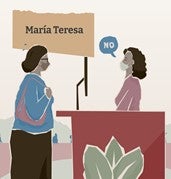
María Teresa has lived for five years in Soledad, in the metropolitan area of Barranquilla, where she works as a domestic worker.
His employer had COVID and recommended that he be tested at a nearby laboratory. When he arrived, despite having his papers in order, the receptionist refused to give him an appointment.
It has already happened to María Teresa other times. There are looks that say more than many words: there is no need to explain to him that it is because he is a migrant.
What can be done so that people like María Teresa do not experience a similar situation again?
- When trying to access health services, many migrants suffer hostile treatment because of their condition.
- 53% of the study participants reported having suffered discrimination in the health system.
- To improve cultural and gender equity, educational materials must be provided for health agents who interact with migrants.
If you enjoyed this blog, sign up here to receive our monthly newsletter with all the blogs, news, and events from the IDB’s Housing and Urban Development Division

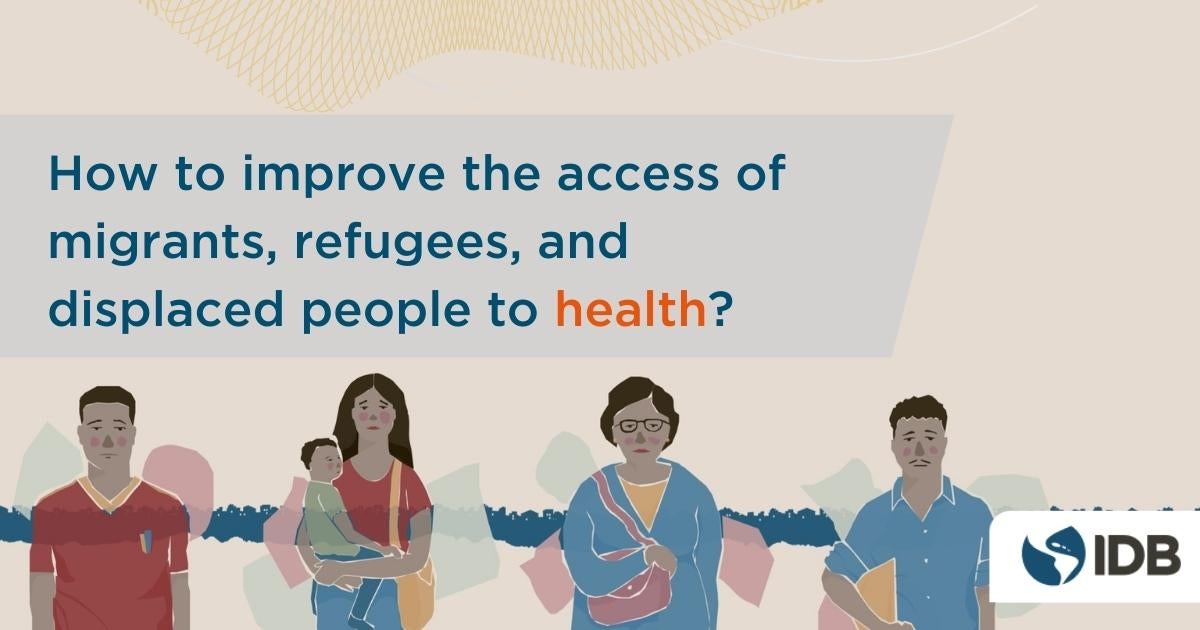
Leave a Reply